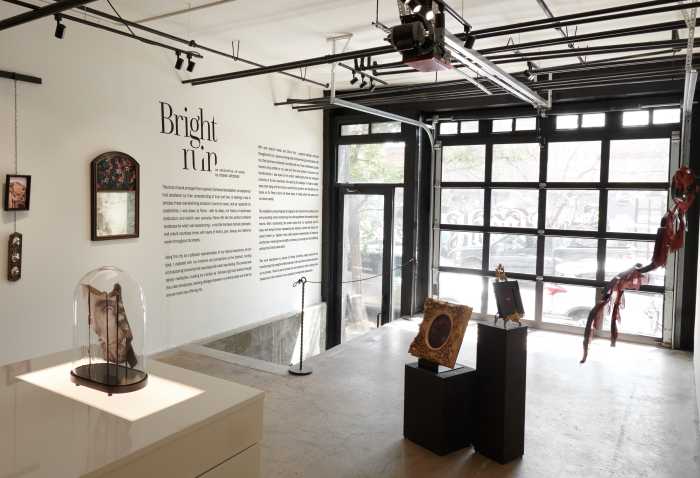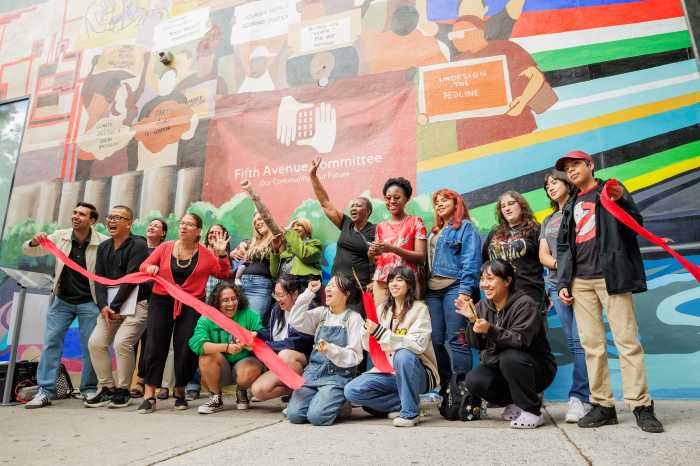For the final concerts in what’s been a tumultuous 2001-2002
season, Robert Spano and the Brooklyn Philharmonic are looking
far eastward, to the "Eternal East," the great, multitudinous
culture of China.
The main work on the April 26-27 program is Gustav Mahler’s massive
orchestral song-cycle that was inspired by the poetry of China’s
master poet Li-Po, "Das Lied von der Erde (The Song of the
Earth)," which will be sung by mezzo-soprano Nancy Maultsby
and tenor Anthony Dean Griffey.
To complement the Mahler work, Spano and the Philharmonic are
playing works by Bright Sheng: his full-length orchestral work
"Nanking! Nanking!" and a world premiere of the concert’s
opener, commissioned by the Philharmonic, "Tibetan Swing!"
Sheng, professor of music at the University of Michigan, spoke
to GO Brooklyn from his home in Ann Arbor, to discuss his and
Mahler’s music and his relationship with Spano.
"He [Spano] had been wanting to do something of mine for
a while, something to play along with the Mahler ’Das Lied,’"
Sheng said. "When he heard ’Nanking,’ he liked it very much,
and he wanted to do that piece as well. So, even though the Brooklyn
Philharmonic wanted to commission something from me for a while,
with their financial situation recently, it’s been difficult.
And then they got a grant from the Koussevitzky Foundation, which
enabled them to commission ’Tibetan Swing.’"
Sheng described his latest composition: "It’s about eight-
to 10-minutes long, and it’s based on a Tibetan rhythm and melodic
motif, which I got to know while I zwas living there over 20
years ago. I never thought of making it a vocal piece. I don’t
think either of us ever had the idea of matching the Mahler as
a vocal work, but to use the Mahler work’s own basis in Chinese
culture."
As for Mahler’s "Das Lied," Sheng notes that the Austrian
composer strove to acknowledge the poetry’s origins musically.
"He did try to make it Chinese-like in places," noted
Sheng. "He uses pentatonic scale throughout. And, since
I’m Chinese, I tried to use a little Mahler in my piece."
"Nanking! Nanking!" is also a work that Sheng has
no trouble discussing. "I actually called it a ’Threnody
for Orchestra and Pi-pa,’ and it’s about 25- to 30-minutes long,
but it’s not a concerto per se. The soloist is very important
but it’s a not a traditional concerto." (A threnody is a
song of mourning.)
The work is also based on a non-traditional musical subject.
"It commemorates the massacre of Chinese civilians by the
Japanese in 1937," Sheng explains. "It was called the
Rape of Nanking and it was quite traumatic, like the Holocaust
in Europe, but very rarely talked about in China until recently.
"’Nanking! Nanking!’ was a millennium commission, and was
premiered in Germany in 2000," said Sheng. "Everybody
was thinking about what happened in the previous 100 years, some
of the man-made tragedies that occurred. I hope people can remember
and not make the same mistakes."
Unlike many concertos, Sheng utilizes the soloist’s instrument
(to be played at these performances by Zhang Qiang) in a more
narrative way. "I use the pi-pa as one person telling his
or her story the pi-pa is a victim, a witness or a survivor,
a lone voice pitted against this massive orchestra," said
Sheng.
And just what is a pi-pa? "The pi-pa belongs to the same
family as the lute," Sheng explained. "It’s attributed
to the Babylonian civilization, and was brought into China as
early as 2,500 years ago. Gradually it evolved into the instrument
it is today, played vertically instead of horizontally."
Named a MacArthur "Genius" fellow and invited by President
Bill Clinton to play at the White House in 1999, Bright Sheng
has already had a successful composing career. Now, with future
recordings on the BIS and Naxos labels and performances of his
music here in Brooklyn, Bright Sheng’s future is, indeed, bright.
The Brooklyn Philharmonic performs Sheng and Mahler at the
Brooklyn Academy of Music Howard Gilman Opera House (30 Lafayette
Ave. at Ashland Place) on April 26 and April 27 at 8 pm. Tickets
are $50, $35 and $20.
























